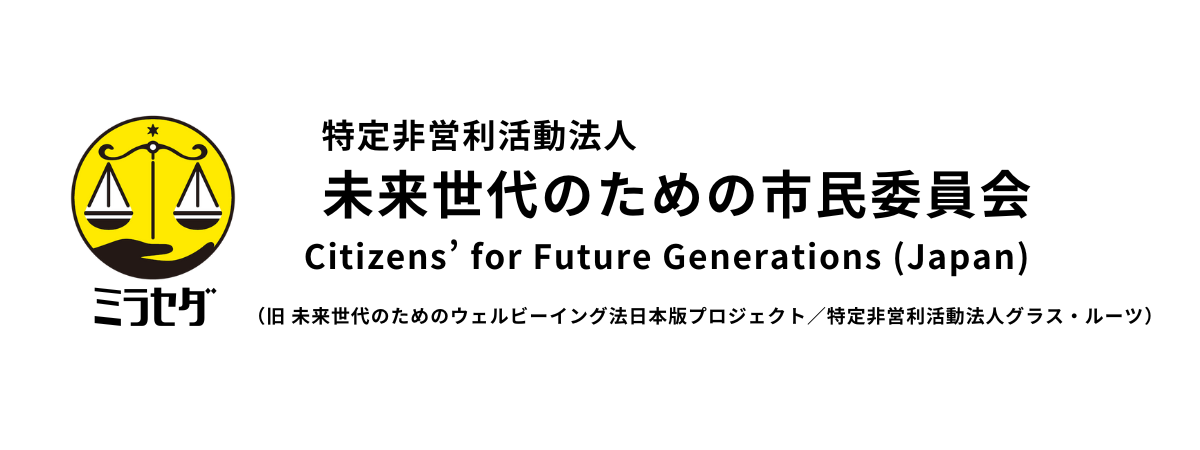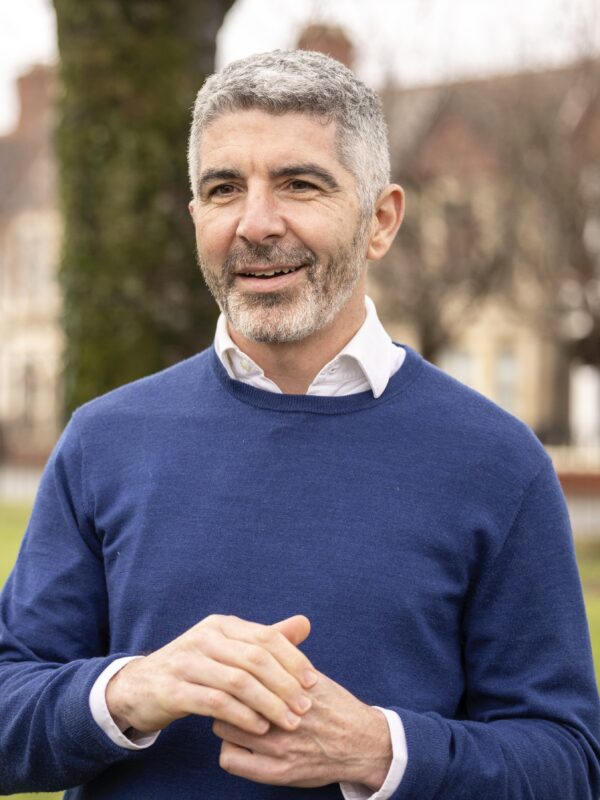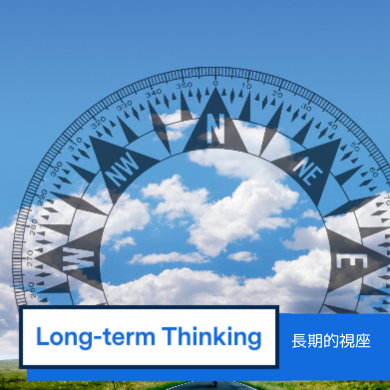Advice on setting well-being objectives for all public bodies and boards covered by the Well-being of Future Generations Act (including Welsh Government)
「未来世代法」の対象となるすべての公的機関および理事会に対する福祉目標の設定に関する助言
Please refer to the chapter on Setting Good Objectives in Chapter 4, but in setting their objectives all public bodies and boards covered by the Well-being of Future Generations Act (including Welsh Government) should always:
- Undertake horizon scanning exercises to think, plan and resource for the long-term future with others in collaboration – public, private, voluntary sector and members of their community. Welsh Government should help by establishing a targeted resource to help public bodies build capacity in long-term thinking, planning and futures techniques.
- Use the first part of the ‘double test’ to identify ‘what’ they should do to maximise contributions to the well-being goals.
- Set a long-term vision. Consider what success looks like for that objective in five, ten, fifteen, twenty and twenty-five years; and identify appropriate milestones and measures – considering the national milestones set by Welsh Government.
- Move towards better involving people throughout the decision-making process from defining a problem to delivery and evaluation, being open to real change as a result. Welsh Government should help by undertaking a review of the statutory guidance of the Well-being of Future Generations (Wales) Act 2015, to build in a specific mechanism for the public to be involved in the work of public bodies – learning from the Scottish Community Empowerment Act.
第4章の「優れた目標の設定」の章を参照。「未来世代法」の対象となるすべての公的機関および理事会(ウェールズ政府を含む)は、目標を設定する際に、常に以下のことを行うべきである:
・公共、民間、ボランタリーセクター、コミュニティのメンバーなど、他の人々と協力して、長期的な将来について考え、計画し、資源を確保するために、ホライズン・スキャニング(将来大きなインパクトをもたらす可能性のある変化の兆候をいち早く捉え ることを目的とした将来展望活動の一つ)を実施する。ウェールズ政府は、公的機関が長期的思考、計画、未来技術の能力を構築するのを支援するための、的を絞ったリソースを確立することによって支援すべきである。
・「ダブルテスト」の最初の部分を用いて、幸福目標への貢献を最大化するために「何を」すべきかを特定する。
・長期的なビジョンを設定する。5年後、10年後、15年後、20年後、25年後にその目標がどのような成功を収めるかを検討し、ウェールズ政府によって設定された国のマイルストーンを考慮しながら、適切なマイルストーンと指標を特定する。
・問題の定義から解決、評価まで、意思決定プロセス全体を通じて人々をよりよく巻き込み、その結果、真の変化を受け入れる。ウェールズ政府は、公的機関の業務に市民が関与するための具体的なメカニズムを組み込むために、Well-being of Future Generations (Wales) Act 2015の法定ガイダンスの見直しを行うことによって支援すべきである。
In testing and demonstrating how they are applying the Act, all public bodies and boards covered by the Well-being of Future Generations Act (including Welsh Government) should:
- Ensure they move beyond paper-based exercises, increase staff understanding and provide constructive challenge to show how the five ways of working have been applied, specifically how contribution to the goals and objectives can be maximised.
- Build challenge from other departments, experts and stakeholders into their internal decision-making processes.
- Develop their corporate centre and processes in line with the requirements of the Act, but also encourage innovation and culture change. All public bodies should be using and demonstrating use of resources like the Future Generations Frameworks, designed to help public bodies consider their proposal or decisions in the context of the Act. (See resources).
- Adopt the definition of stages of prevention and preventive spend and allocate spending accordingly within financial planning and risk management.
「未来世代法」が適用されるすべての公的機関および理事会(ウェールズ政府を含む)は、同法の適用方法をテストし、実証する際に、以下のことを行うべきである:
・紙ベースの演習にとどまらず、職員の理解を深め、建設的な課題を提供することで、5つの働き方がどのように適用されたか、具体的には目標や目的への貢献がどのように最大化されたかを示す。
・社内の意思決定プロセスに、他部門、専門家、利害関係者からのチャレンジを組み込む。
・この法律の要件に沿って、コーポレートセンターとプロセスを発展させるだけでなく、革新と文化の変化を奨励する。すべての公共機関は、未来世代フレームワークのような資源を利用し、その利用を実証すべきである。(リソース参照)。
・予防の段階と予防的支出の定義を採用し、財政計画とリスク管理の中でそれに従って支出を配分する。
In measuring their progress, all public bodies and boards covered by the Well-being of Future Generations Act (including Welsh Government) should:
- Starting with action from Welsh Government, public bodies should align their corporate planning, performance management and reporting with the requirements of the Act, encouraging planning that focuses on long-term and prevention.
- When set, use Welsh Government national milestones to define appropriate success measures for achieving well-being objectives and steps in five, ten, fifteen and twenty-five years’ time.
- Consider a similar method to the setting of national milestones, to define appropriate success measures for achieving well-being objectives and steps in five, ten, fifteen and twenty-five years time.
- Find ways of measuring the success of initiatives based on well-being to encourage integration, preventative thinking and collaboration.
- Invest in building a movement of change, identifying and breaking down barriers to implementation and promoting wide understanding of how each part of their organisation contributes to the national mission of the Act - improving the well-being of future generations.
ウェールズ政府を含む、「未来世代法」の対象となるすべての公共団体と理事会は、進捗状況を測定する際に、以下のことを行うべきである:
・ウェールズ政府からのアクションを皮切りに、公的機関は、その経営計画、業績管理、報告を同法の要件に合わせ、長期的かつ予防に焦点を当てた計画を奨励する。
・5年後、10年後、15年後、25年後のウェルビーイングの目標やステップを達成するための適切な成功指標を定義するために、ウェールズ政府の国家マイルストーンを使用する。
・5年後、10年後、15年後、25年後のウェルビーイングの目標とステップを達成するための適切な成功指標を定義するために、国のマイルストーン設定と同様の方法を検討する。
・統合、予防的思考、協力を促進するために、福祉に基づくイニシアチブの成功を測定する方法を見つける。
・変革のムーブメントの構築に投資し、実施への障壁を特定・打破し、組織の各部門がこの法律の国家的使命である「未来世代の幸福の向上」にどのように貢献するかについて、幅広い理解を促進する。
In considering their steps, all public bodies and boards covered by the Well-being of Future Generations Act (including Welsh Government) should:
- Test everything they do according to the Act’s ‘double test’ of the 'what' and the 'how'.
- Collaborate with others and involve people to find the problems they need to prevent, understanding whether they fall into primary, secondary or tertiary prevention; using evidence to identify the best possible preventative interventions that maximise contribution to their objectives.
- Public Services Boards and public bodies should be seeking ways of more effectively collaborating and integrating their work with others such as town and community councils and national public bodies; and identifying opportunities with others such as registered social landlords, the private sector, trade union representatives and further and higher education in delivering their well-being objectives and steps.
- Set out much clearer steps to meeting their well-being objectives – reflecting what contribution each department will be taking to these steps.
- Clearly align financial planning and decisions across the seven corporate areas of change to the achievement of their well-being objectives. The vision provided by well-being objectives should provide a longer-term plan of funding and corporate plans/well-being statements should set out how spending plans will seek to finance their steps.
- Provide evidence in their well-being statements/plans/corporate plans and annual reports on how applying the Act to the corporate areas of change is informing the steps they are taking to maximise their contribution to the goals.
「未来世代法」が適用されるすべての公的機関および理事会(ウェールズ政府を含む)は、その措置を検討する際に、以下のことを行うべきである:
・「何を」「どのように」という同法の「二重のテスト」に従って、すべての行動をテストする。
・一次予防、二次予防、三次予防のいずれに該当するかを理解し、その目的への貢献を最大化する最善の予防介入策を特定するためにエビデンスを活用する。
・公共サービス委員会や公共団体は、町会やコミュニティ協議会、国の公共団体などと、より効果的に連携・統合する方法を模索し、ウェルビーイングの目標やステップを達成するために、登録社会的地主、民間セクター、労働組合代表、高等教育機関などと協力する機会を見出すべきである。
・福祉目標を達成するためのステップをより明確にし、各部門がこれらのステップにどのような貢献をするかを反映させる。
・幸福目標の達成に向け、7つの変革分野における財務計画と意思決定を明確に整合させる。幸福目標が提供するビジョンは、より長期的な資金計画を提供するものであり、企業計画/幸福宣言は、支出計画がどのようにそのステップの資金を調達しようとしているかを示すものでなければならない。
・幸福宣言/計画/企業計画および年次報告書において、変革の企業分野への法の適用が、目標への貢献を最大化するために取っている措置にどのように反映されているかについての証拠を提示する。
In supporting cultural change, all public bodies and boards covered by the Well-being of Future Generations Act (including Welsh Government) should:
- Starting with Welsh Government, adopt a model of well-being budgets. While our legislation requires us to look at the whole budget, a positive place to start this transition would be with ‘new money’.
- Galvanise efforts and building a movement of change, placing well-being and kindness at the centre of public policy.
- Involve their workforce in meeting their well-being objectives; start with their own actions, their teams, departments and whole organisations; to meet the national well-being goals.
- Put in place arrangements to ensure staff understand how and why the Act should be applied.
- Support opportunities to collaborate, second staff to other organisations and make joint appointments.
- Take action to diversify their workforce and put in place arrangements to draw on their lived experiences. (For more detail please see Chapter 2 recommendations to Welsh Government on the ‘Real Life Fast Track’).
- Ensure scrutiny committees, boards, and Audit and Risk Committees have received training on the Act and are using the Future Generations Framework for Scrutiny. (See resources).
- Ensure that they have mechanisms in place to involve children and young people in their decision making processes.
- In the same way that public bodies seek to appoint people with expertise on finance, risk, governance and human resources; an appropriate number (at least one for every board) of public appointments should be made where specific expertise and detailed understanding of the needs of future generations is a specific requirement.
- Be brave in calling out behaviour in partnership environments which does not embody the five ways of working; and should be supported by Welsh Government, the Future Generations Commissioner for Wales and other appropriate agencies to address this.
文化的な変化を支援するために、ウェールズ政府を含む、「未来世代法」の対象となるすべての公共団体と理事会は、以下のことを行うべきである:
・ウェールズ政府を皮切りに、福祉予算のモデルを採用する。私たちの法律は予算全体を見ることを求めているが、この移行を「新しいお金」から始めるのは前向きなことである。
・努力を結集し、公共政策の中心に幸福と優しさを据え、変革のムーブメントを構築する。
・国の幸福目標を達成するために、従業員自身の行動、チーム、部署、組織全体から始める。
・この法律がどのように適用されるべきか、またなぜ適用されるべきかを職員が理解できるような態勢を整える。
・協働、他組織への出向、共同登用の機会を支援する。
・従業員を多様化させるための行動をとり、彼らの生活経験を活用するための体制を整える。(詳細については、第2章「実生活のファーストトラック」に関するウェールズ政府への提言を参照のこと)。
・精査委員会、理事会、監査・リスク委員会が同法に関する研修を受け、「精査のための将来世代フレームワーク」を使用していることを確認する。(資料を参照)。
・意思決定プロセスに子どもや若者を参加させる仕組みがあることを確認する。
・公的機関が財務、リスク、ガバナンス、人事に関する専門知識を持つ人材を選任しようとするのと同じように、将来世代のニーズに関する特定の専門知識や詳細な理解が特に必要とされる場合には、適切な人数(少なくとも各理事会に1人)の公募を行うべきである。
・パートナーシップの環境において、5つの働き方を体現していない行動を勇気を持って指摘し、これに対処するためにウェールズ政府、ウェールズ将来世代委員会、その他の適切な機関によって支援されるべきである。
Key Findings
Where are we now? My assessment of the progress made by public bodies in implementing the Act.
Innovation
The Act is bringing about some excellent innovation. I am seeing a growing movement of change, with people daring to deliver differently to improve economic, cultural, social and environmental well-being. For example…
現在の状況は?公的機関による同法の実施状況についての私の評価
イノベーション
この法律は、素晴らしい革新をもたらしつつある。私は、経済的、文化的、社会的、環境的な幸福を向上させるために、あえて異なる方法を提供しようとする人々の、変化の動きが大きくなっているのを目の当たりにしている。例えば...
Lansbury Park
Caerphilly Public Services Board are radically changing their approach, by taking a place-based, collaborative approach to focusing services and regeneration in high areas of deprivation, such as Lansbury Park. In targeting regeneration funding at the homes and neighbourhood of the area, organisations have involved people, listening to their issues, concerns and reasons to celebrate the community. The Public Services Board involve the community in delivering their well-being objectives. For example, parents and children producing books designed to inform carers, teachers and children about the effects of adversity experienced in childhood.
This is a good example of a Public Services Board considering both what they do in line with the Act and then applying the principles of the Act to how they do it.
ランズベリー・パーク
Caerphilly Public Services Boardは、Lansbury Parkのような困窮度の高い地域にサービスや再生を集中させるために、場所をベースとした協力的なアプローチをとることで、そのアプローチを根本的に変えようとしている。再生資金をこの地域の家庭や近隣に集中させるにあたり、組織は人々を巻き込み、彼らの問題や懸念、コミュニティを祝う理由に耳を傾けている。公共サービス委員会は、福祉目標の達成に地域社会を巻き込んでいる。例えば、親子で本を制作し、養育者、教師、子供たちに、子供時代に経験した逆境の影響について知らせる。
これは、公共サービス委員会が、自分たちが何をするのかを法律に沿って検討し、その方法に法律の原則を適用している良い例である。
Solar power for future generations
Monmouthshire Council have developed a solar farm on council-owned land. The Council is contributing to A Globally Responsible Wales, A Resilient Wales, A Prosperous Wales and A Healthier Wales by setting an objective to 'Maximise the benefits of the natural and built environment for the well-being of current and future generations'.
The council say the farm can generate enough electricity to power around 1,400 homes and also save over 2,000 tonnes per year of CO2 by generating clean, renewable energy.
未来世代に太陽光発電を
モンマスシャー州議会は、議会所有地に太陽光発電所を開発した。同協議会は、「現在および未来世代の幸福のために、自然および建築環境の恩恵を最大化する」という目標を設定することで、「世界的に責任のあるウェールズ」、「強靭なウェールズ」、「繁栄するウェールズ」、「より健康なウェールズ」に貢献している。
同協議会によると、この農場は、約1,400世帯分の電力を発電することができ、クリーンで再生可能なエネルギーを発電することで、年間2,000トン以上のCO2を削減することができるという。
Finding new ways to solve problems
South Wales Fire and Rescue Service and Natural Resources Wales have demonstrated the power of collaboration, integration and involvement by seeking to work towards their objective to 'Reduce the number of deliberate fires'.
A range of methods have been adopted, but the ‘Healthy Hillsides’ project in collaboration with the Wildlife Trust, local authorities, other voluntary sector partners, local farmers and the wider community shows contribution to A Prosperous Wales, A Resilient Wales, A Healthier Wales, A Wales of Cohesive Communities and A Globally Responsible Wales.
Wildfires were having a significant impact on the habitats, watercourses and biodiversity of the region, as well as the well-being of the community. By working together, the partnership adopted land management techniques like bracken management, controlled burns and encouraging grazing animals; moving to an approach that prevents wildfires, prevents resources being spent on fire fighting and prevents further habitat loss.
問題を解決する新しい方法を見つける
サウス・ウェールズ消防局とナチュラル・リソース・ウェールズは、「意図的な火災の発生件数を減らす」という目的に向かって取り組むことで、協力、統合、関与の力を実証した。
さまざまな方法が採用されているが、ワイルドライフ・トラスト、地方自治体、その他のボランティア・セクターのパートナー、地元の農家、そしてより広いコミュニティと協力した「健康な丘陵地帯」プロジェクトは、「繁栄するウェールズ」、「災害に強いウェールズ」、「より健康なウェールズ」、「結束力のあるコミュニティのウェールズ」、「世界的に責任のあるウェールズ」への貢献を示している。
山火事は、地域の生息地、水路、生物多様性、そして地域社会の福祉に大きな影響を及ぼしていた。パートナーシップは協力することで、ワラビの管理、コントロールド・バーン、放牧動物の奨励といった土地管理技術を採用し、山火事を防ぎ、消火活動に資源が費やされるのを防ぎ、さらなる生息地の損失を防ぐアプローチへと移行した。
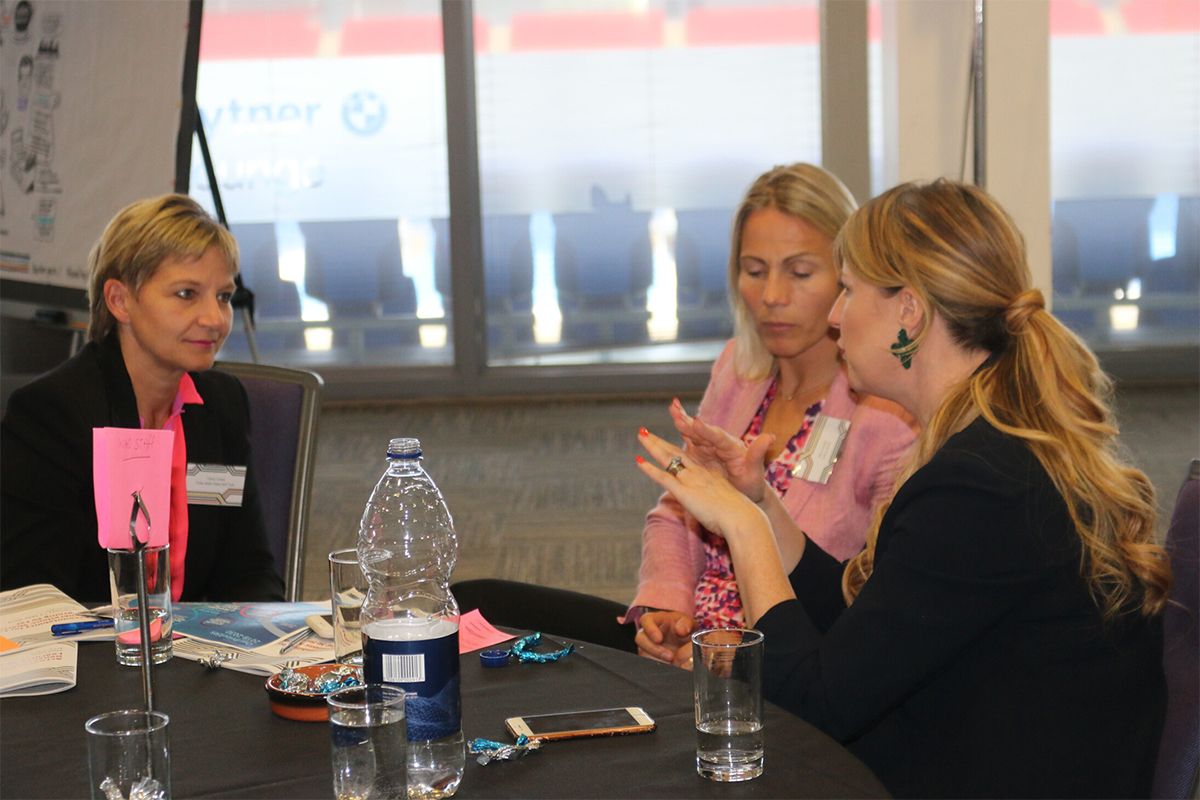
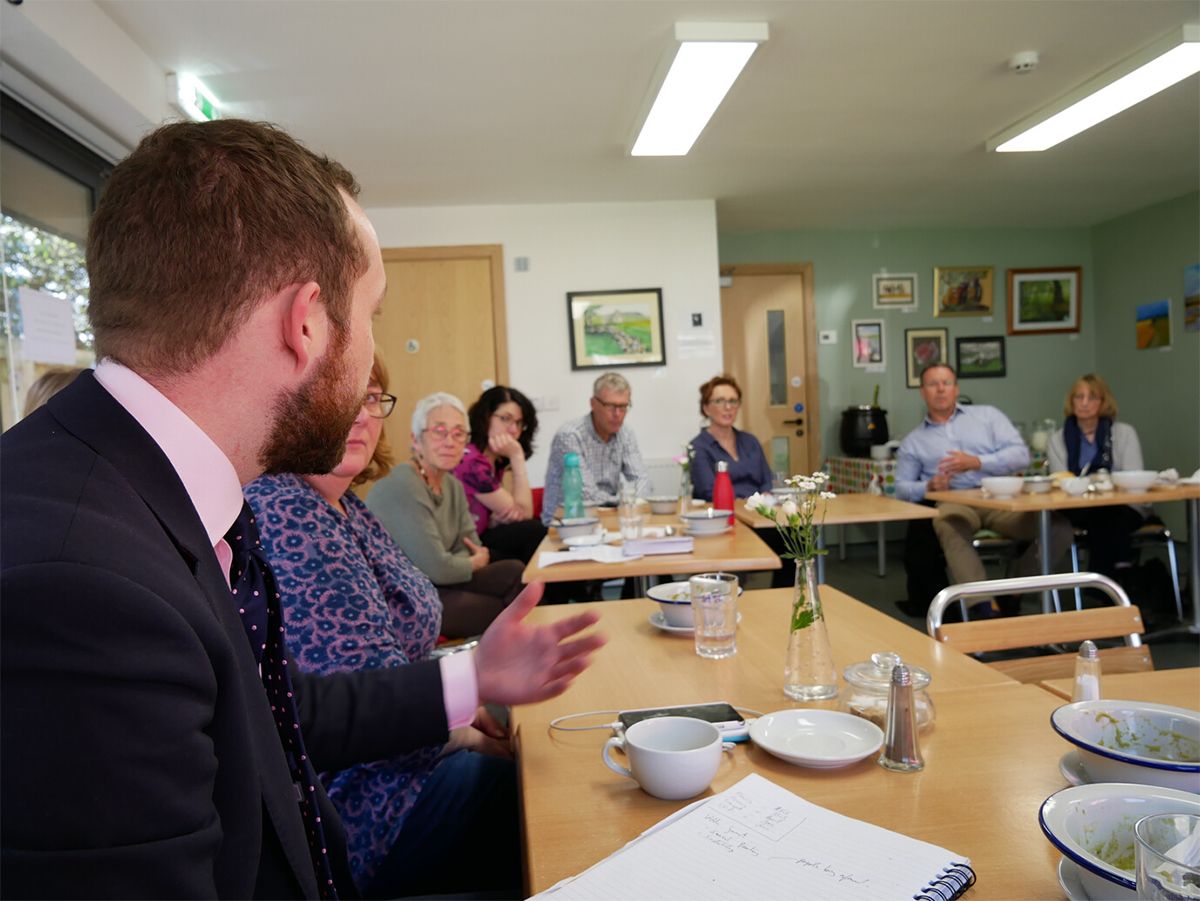
Public Services Boards are showing the power of collaboration, and many public bodies are going beyond their traditional functions to work with others. Collaboration now needs to move beyond involving the most obvious partners and from ‘information-sharing’ towards pooling resources.
The Act has provided public bodies and Public Services Boards with a renewed focus on meaningful involvement. But, their governance, decision-making processes and scrutiny could be more diverse and involve a wider range of people.
More could be done to involve the public sector workforce, placing well-being and kindness at the centre of public policy.
公共サービス委員会(PBS)は協働の力を示しており、多くの公共機関が従来の機能を超えて他機関と協働している。協働は、最も明白なパートナーを巻き込むだけでなく、「情報の共有」から「資源の共有」へと進む必要がある。
同法は、公共団体と公共サービス委員会に対し、有意義な参画に改めて焦点を当てるようにした。しかし、そのガバナンス、意思決定プロセス、精査は、より多様で、より幅広い人々を巻き込むことができるだろう。
公共部門の労働者を巻き込み、幸福と優しさを公共政策の中心に据えるために、もっと多くのことができるはずだ。
Implementation
The early years of the Act required significant focus on process and on building relationships, but attention is now turning to action.
Public bodies were required to set their first well-being objectives by April 2017. At the same time, Public Services Boards were coming together for the first time and many have spent time on building trust and relationships.
Most public bodies are making progress on implementing the Act but in different ways (see below for more information). In the next phase, they need to apply the Act across all of its aspirations and legal requirements.
実施
この法律が施行された当初は、プロセスや関係構築に多大な労力を要したが、現在では行動に注目が集まっている。
公共機関は、2017年4月までに最初の福祉目標を設定することが求められた。同時に、公共サービス委員会が初めてまとまり、その多くが信頼と関係の構築に時間を費やしてきた。
ほとんどの公共機関は、この法律の実施に向けて前進しているが、その方法は様々である(詳細は下記参照)。次の段階では、公共サービス法のすべての目的と法的要件に適用する必要がある。
Collaborating to create integration in Cardiff
By seeking to understand the wider social, economic, environmental and cultural impact they could have, Cardiff Council collaborated with the wider partners of Cardiff Public Services Board, residents and businesses to develop a clean air and transportation strategy for the city, recognising that this is an important lever to meet a number of their well-being objectives and the national well-being goals.
The work has been given a ‘public health’ lens through the secondment of a Public Health consultant to the council. This has prompted a significant refocus on how they can address problems with congestion and poor air quality in a way which drives further progress on meeting their objectives.
This work has led to a focus on making active travel the norm through schemes like ‘nextbike’, introducing the ‘congestion charge’ to the city, and creating buildings like Ysgol Hamadryad in the Butetown area as a school inaccessible to vehicles; encouraging more people to walk or cycle. They have considered the socio-economic links to this work by prioritising the most deprived areas with the lowest life expectancy for investment in cycle lanes and active travel infrastructure.
カーディフにおける統合のための協力
カーディフ市議会は、より広い社会的、経済的、環境的、文化的な影響を理解するために、カーディフ公共サービス委員会、住民、企業などの幅広いパートナーと協力し、市の大気浄化と交通戦略を策定した。
公衆衛生のコンサルタントを議会に派遣することで、「公衆衛生」的な視点を取り入れた。これにより、目標達成をさらに前進させる方法で、渋滞や大気の質の低下といった問題にどのように対処できるかに、大きな焦点が当てられるようになった。
この取り組みにより、「ネクストバイク」のようなスキームを通じて、アクティブ・トラベルを当たり前のものにすること、「渋滞料金」を都市に導入すること、ビュートタウン地区にあるYsgol Hamadryadのような建物を自動車が通れない学校として建設することなどに焦点を当て、より多くの人々が徒歩や自転車で移動することを奨励している。また、社会経済的なつながりを考慮し、平均寿命が最も短く、最も恵まれない地域を優先的にサイクルレーンやアクティブ・トラベル・インフラに投資している。
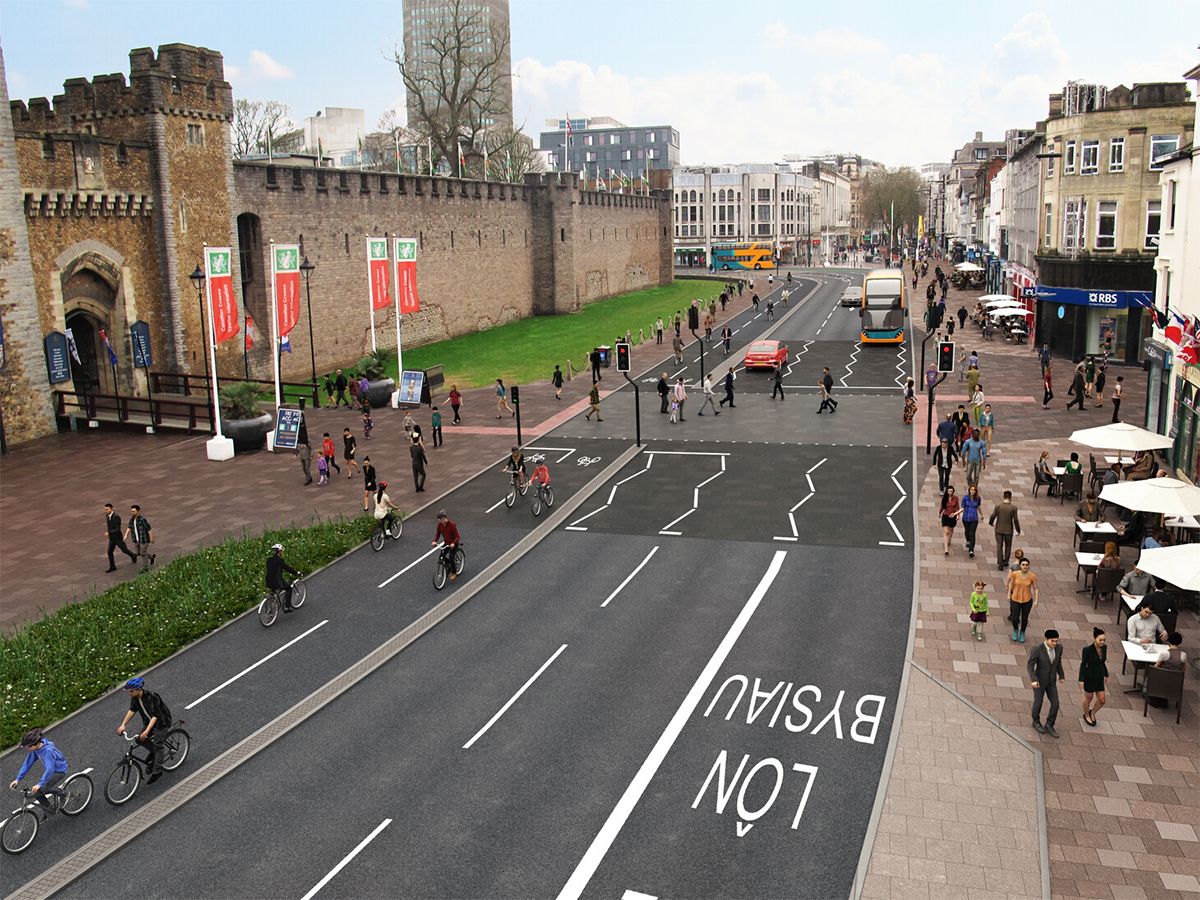
In implementing the Act, some public bodies are delivering the 'what' and some are delivering the 'how' examples; however, there is further work needed for public bodies to fully demonstrate the 'double test' of the Act - applying both.
For example, initially the Housing Innovation Fund was established by Welsh Government with the Act at its centre - to fund innovative ways of increasing housing stock that was fit for the future. However, in implementing the ‘what’, government initially did not fully consider the ‘how’ and the first few rounds of funding asked bidders to demonstrate their contribution to only one well-being goal.
Other public bodies have been considering the ‘how’ but not the ‘what’, suggesting a lack of integration and collaboration. For example, Swansea Bay Health Board have positively reduced gas and electricity consumption. While positive, this does not appear to be linked to their well-being objectives and therefore chances to consider the wider opportunities that decarbonisation could deliver to their core duties of improving the health of their population are being missed.
しかし、公的機関がこの法律の「ダブルテスト」を完全に実証するためには、さらなる努力が必要である。
例えば、住宅革新基金は当初、ウェールズ政府が同法を中心に設立したもので、未来にふさわしい住宅ストックを増やすための革新的な方法に資金を提供するためのものであった。しかし、「何を」を実施するにあたり、政府は当初、「どのように」を十分に考慮せず、最初の数回の資金援助では、一つの幸福目標への貢献のみを示すよう入札者に求めた。
他の公的機関は、「どのように」は検討しているが、「何を」は検討しておらず、統合と協力の欠如を示唆している。例えば、Swansea Bay Health Boardは、ガスと電気の消費量を積極的に削減した。積極的ではあるが、これは幸福の目標とはリンクしていないようであり、そのため、脱炭素化が住民の健康増進という中核的な責務にもたらしうる、より広範な機会を検討するチャンスを逃している。
Public Services Boards are beginning to work together more effectively. For example…
n the five Gwent Public Services Boards, partners are collaborating on a regional basis to use funding for projects like the Gwent Green Grid, which is identifying local collaborative opportunities for protected sites and natural and built environments to contribute towards the resilience of wider ecosystems in the region. The region has also introduced Integrated Well-being Networks, a placebased collaborative project to set up health and well-being hubs and use the assets of communities, with the aim of preventing people in the community needing to access hospitals or social services.
I have been providing advice and assistance to Cwm Taf Public Services Board to help them work collectively to tackle adversity experienced in childhood. Through a “Live Lab” approach, my team have supported member organisations of the Public Services Board to use the Act to challenge their thinking, understand different organisational cultures and find an integrated way forward through a complex issue.
公共サービス委員会は、より効果的に連携し始めている。例えば…
グウェント州の5つの公共サービス委員会では、パートナーが地域単位で協力し、グウェント・グリーン・グリッドのようなプロジェクトに資金を活用している。このプロジェクトは、保護地域や自然環境、建築環境について、地域内で協力する機会を特定し、地域全体の生態系の回復力に貢献するものである。この地域はまた、統合福祉ネットワークを導入している。これは、健康や福祉のハブを設置し、地域社会の資産を活用するための場所ベースの共同プロジェクトであり、地域社会の人々が病院や福祉サービスを利用する必要がなくなることを目的としている。
私は、Cwm Taf公共サービス委員会が幼少期に経験した逆境に集団で取り組めるよう、助言と支援を行っている。私のチームは、「ライブ・ラボ」というアプローチを通じて、公共サービス委員会のメンバー組織が、この法律を使って自分たちの考え方に挑戦し、異なる組織文化を理解し、複雑な問題を解決するための統合的な方法を見つけるのを支援してきた。
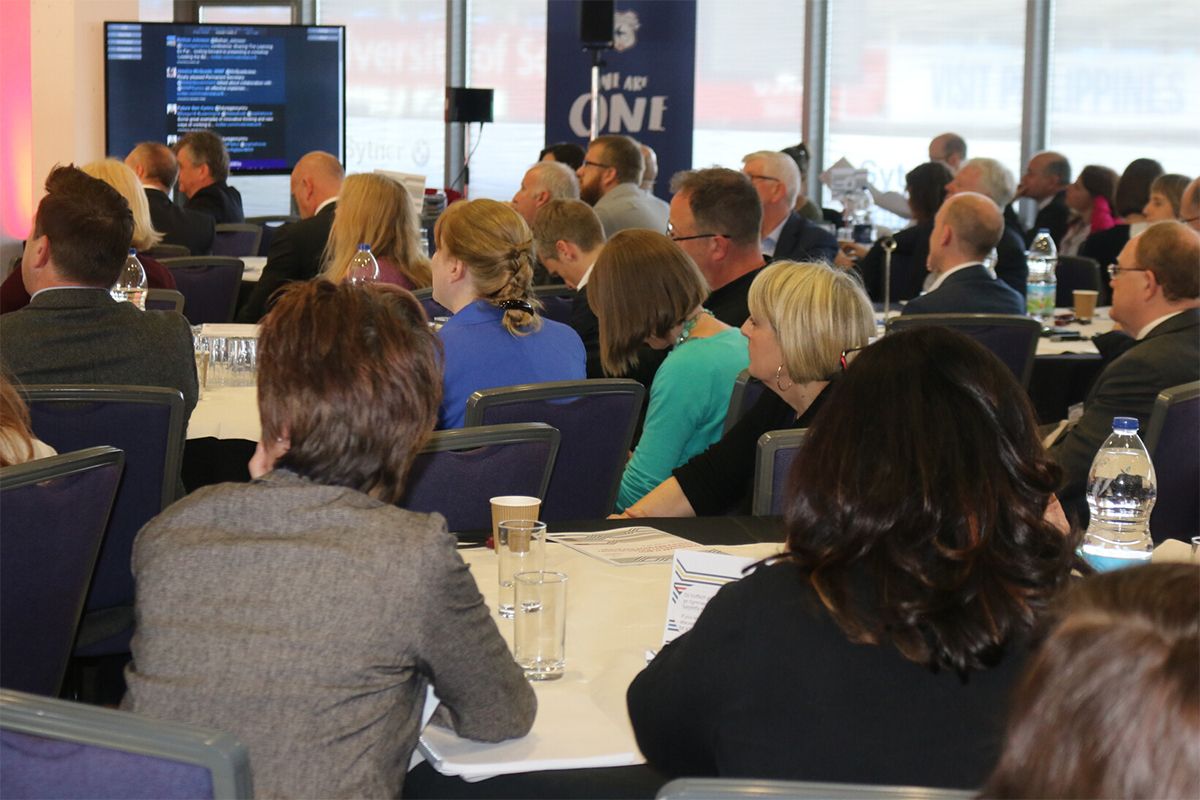
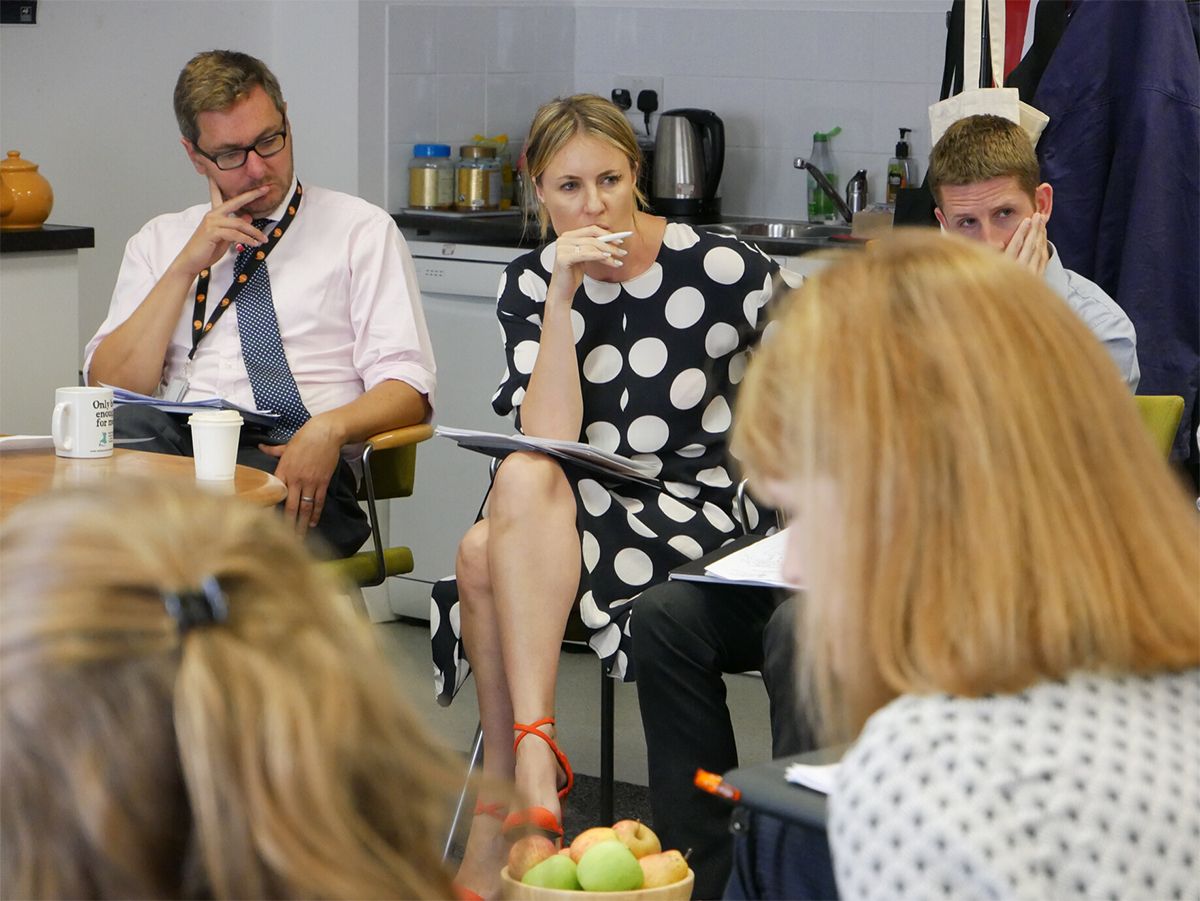
However, their efforts to operate in a more transformational way are being hindered due to barriers such as funding, complex governance and capacity.
For example, funding is needed to support more capacity and capability in long-term, futures thinking, involvement, research and data analysis. Public Services Boards require access to more government funding opportunities that would enable the board to take more substantial steps towards meeting their well-being objectives. They are struggling to be as effective as they could be because boards exist in a complex partnership governance landscape which has a knock-on effect of some partners not being engaged in Public Services Boards – their attention diverted to other boards. (See my advice and recommendations to Welsh Government on removing barriers to implementation of the Act.)
The corporate planning, performance management and reporting requirements set by Welsh Government for public bodies need to reflect the Act better:
Currently, reporting progress on well-being objectives is a challenge because of responding to other duties and requirements from Welsh Government. Public bodies have reported how difficult it is to change to a long-term, integrated and collaborative form of measuring progress when Welsh Government continue to hold leaders to account on short-term plans and short-term performance and financial measures. Requirements should enable public bodies to shift from focusing on short-term delivery and move to planning preventatively, for the long-term and in an integrated way.
Financial planning and short-term funding inhibit the ability of public bodies to meet their well-being objectives and make collaboration, prevention, long-term thinking and integration more challenging.
The corporate areas of change (I.e. corporate planning, financial planning, workforce planning, procurement, assets, risk management and performance management) outlined in the Act are potential levers to drive change, but public bodies must make better use of them.
Currently, many organisations are seeing these functions as a hindrance rather than a help to meeting the aspirations of the Act. There are inconsistencies in how far public bodies are going to achieve what’s possible and driving cultural change within their corporate areas of change. For example, in Carmarthenshire, two new primary schools have recently been built to Passivhaus standards, meaning a high quality learning space for pupils, a sustainable environment using less energy and local materials being used. Public Health Wales and Swansea Council have recently furnished and decorated their offices using the Act as a guide. As much as possible, furniture was sourced second-hand, flooring and paint were obtained from off-cuts and social enterprises were used to carry out the restoration and refit. Public bodies and Public Services Boards should be evidencing that applying the Act to their corporate areas of change is informing the steps they are taking.
Cultural change requires everyone to play their part.
しかし、より変革的な方法で活動しようとする努力は、資金、複雑なガバナンス、能力といった障壁のために妨げられている。
例えば、長期的、未来的思考、関与、調査、データ分析などの能力向上を支援するための資金が必要である。公共サービス委員会は、福祉目標の達成に向けてより実質的なステップを踏むことができるような、政府からの資金提供の機会を増やす必要がある。理事会は複雑なパートナーシップ・ガバナンスの中に存在するため、公共サービス理事会に関与しないパートナーもいる。(公共サービス法の実施における障壁の除去に関するウェールズ政府への助言と勧告を参照)。
ウェールズ政府が公共機関に対して定めている経営計画、業績管理、報告要件は、この法律をよりよく反映させる必要がある:
現在、ウェルビーイング目標の進捗状況を報告することは、ウェールズ政府からの他の義務や要件に対応するため、困難である。公的機関は、ウェールズ政府が短期的な計画や短期的な業績・財務指標について指導者の責任を追及し続ける中で、長期的・統合的・協力的な進捗測定に変更することがいかに困難であるかを報告している。要件は、公共団体が短期的な達成に集中することから、予防的、長期的、統合的な計画に移行することを可能にするものでなければならない。
財政計画と短期的な資金調達は、公共団体が福祉目標を達成する能力を阻害し、協力、予防、長期的思考、統合をより困難なものにしている。
法律で概説されている変革の企業分野(すなわち、企業計画、財務計画、人員計画、調達、資産、リスク管理、業績管理)は、変革を推進する潜在的なレバーであるが、公共機関はそれらをよりよく活用しなければならない。
現在、多くの組織は、これらの機能を、この法律の願望を達成するための助けというよりは、むしろ障害と見なしている。公的機関がどこまで可能なことを実現し、その組織内の変革領域で文化的変革を推進するかには、一貫性がない。例えば、カーマーテンシャー州では、最近2つの新しい小学校がパッシブハウス基準で建設された。これは、生徒にとって質の高い学習空間であり、少ないエネルギーで持続可能な環境であり、地元の材料が使用されていることを意味する。ウェールズ公衆衛生局とスウォンジー・カウンシルは、パッシブハウス規格を参考に、オフィスの家具や内装を一新した。可能な限り、家具は中古品を調達し、床材や塗料は端材から入手し、修復や改装には社会的企業を利用した。公共団体と公共サービス委員会は、この法律を自分たちの変革の対象分野に適用することが、自分たちの取るべき措置に反映されていることを証明すべきである。
文化の変革には、すべての人がそれぞれの役割を果たす必要がある。
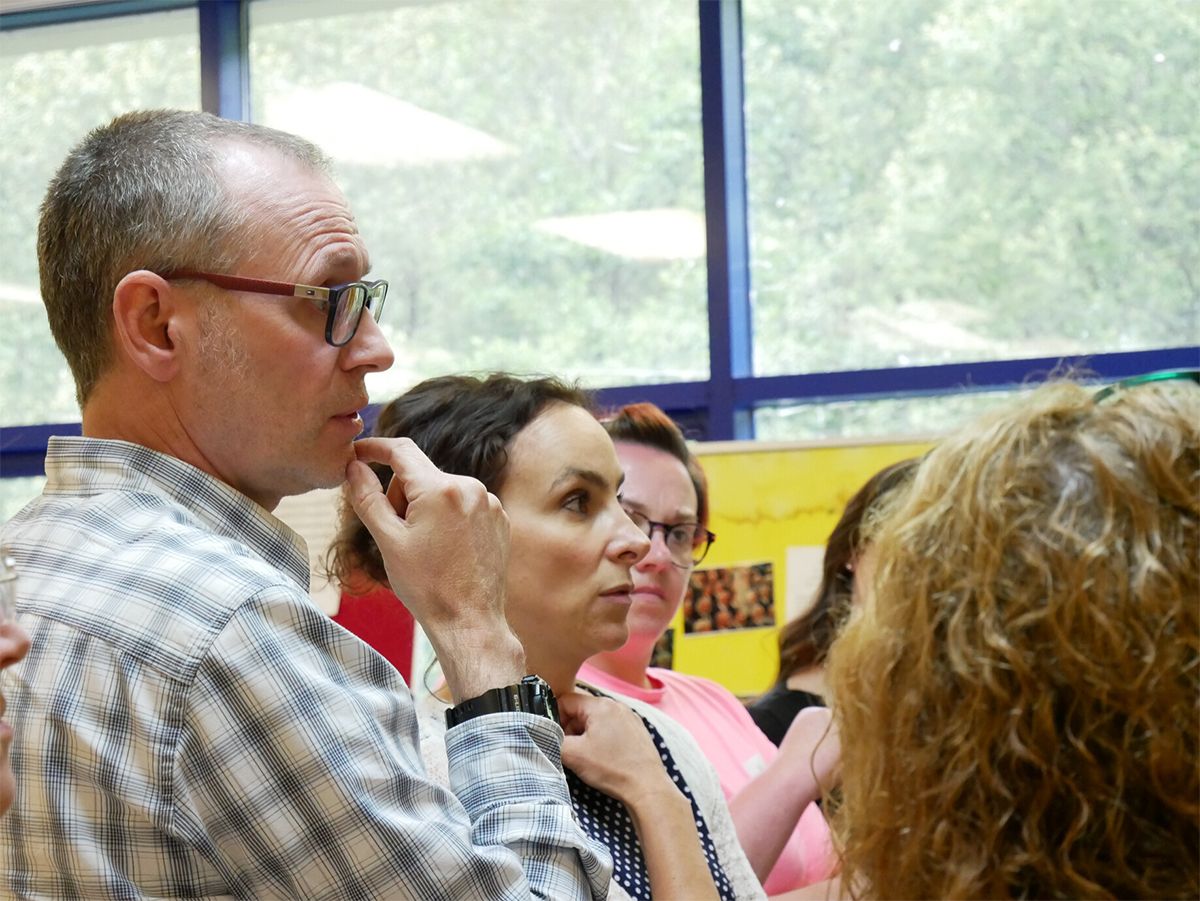
Insight
Public bodies and Public Services Boards are considering the long-term more than ever before.
For example, in their well-being assessments, Cardiff Public Services Board looked at ‘Cardiff Tomorrow’, exploring the possible scenario for every topic based on existing trends and what shift might be needed to take preventative actions now.
The Public Services Boards in the Gwent region collaborated with Ash Futures Consulting to publish a Horizon Scanning report on likely trends for the next 10-20 years. Hywel Dda University Health Board on setting a 20-year strategy for their work: 'A Healthier Mid & West Wales: our future generations living well.'
But the whole system needs to move to be thinking and acting for the long-term.
Public bodies have an increasing understanding of the need to take preventative action.
I can see this in well-being objectives and steps (for example: ‘Promote good health and well-being') and there is a good theoretical understanding of prevention things like housing, poverty, education and environment having a positive or negative effect on your life. However, there seems to be less understanding of the actions that needs taking as public bodies are often looking at problems in isolation. Newcastle City Council found that their school-based approach to dealing with young people Not in Education, Employment or Training (NEET) was focused on the wrong things. The biggest indicator was multiple contacts with social services, not GCSE attainment. The research showed that those who had had as little as six interactions with social services spent almost three times longer out of education or training.
Public bodies are not always making the best use of insight provided by a wide range of partners, the public and their workforce.
Whilst partnership working and collaboration has improved, public bodies should explore more comprehensively the information and intelligence held by organisations and groups beyond the more obvious partners.
洞察
公共団体や公共サービス委員会は、これまで以上に長期的な視点に立った検討を進めている。
例えば、カーディフ公共サービス委員会は、福祉評価において、「カーディフの明日」を検討し、既存の傾向に基づき、あらゆるトピックについて起こりうるシナリオを探り、予防的行動をとるために今どのような転換が必要かを検討した。
グウェント地域の公共サービス委員会は、アッシュ・フューチャーズ・コンサルティングと協力して、今後10〜20年の傾向に関するホライゾン・スキャニング・レポートを発表した。ハイウェル・ドゥダ大学保健委員会は、「より健康的なミッド&ウェスト・ウェールズ:私たちの未来の世代が健康に暮らすために」という20年戦略を策定した。
しかし、システム全体が長期的な視野に立って考え、行動する必要がある。
公的機関は、予防的な行動をとる必要性について理解を深めている。
このことは、幸福の目標やステップ(たとえば「良好な健康と幸福を促進する」)にも表れているし、住宅、貧困、教育、環境といった予防的な事柄が、人生にプラスにもマイナスにも作用することについては、理論的によく理解されている。しかし、公的機関が問題を単独で見ていることが多いため、取るべき行動についての理解は少ないようだ。ニューカッスル市議会は、教育・雇用・訓練を受けていない若者(NEET)に対処するための学校ベースのアプローチが、間違ったことに焦点を当てていることを発見した。最大の指標は、GCSEの達成度ではなく、ソーシャル・サービスとの複数回の接触であった。調査によると、社会福祉サービスとの接触が6回しかなかった者は、教育や訓練を受けていない期間が約3倍も長かった。
公的機関は、さまざまなパートナーや一般市民、労働力から提供される見識を必ずしも最大限に活用していない。
パートナーシップ作業や協力関係は改善されてきているが、公的機関は、より明白なパートナー以外の組織や団体が保有する情報やインテリジェンスをもっと包括的に調査すべきである。
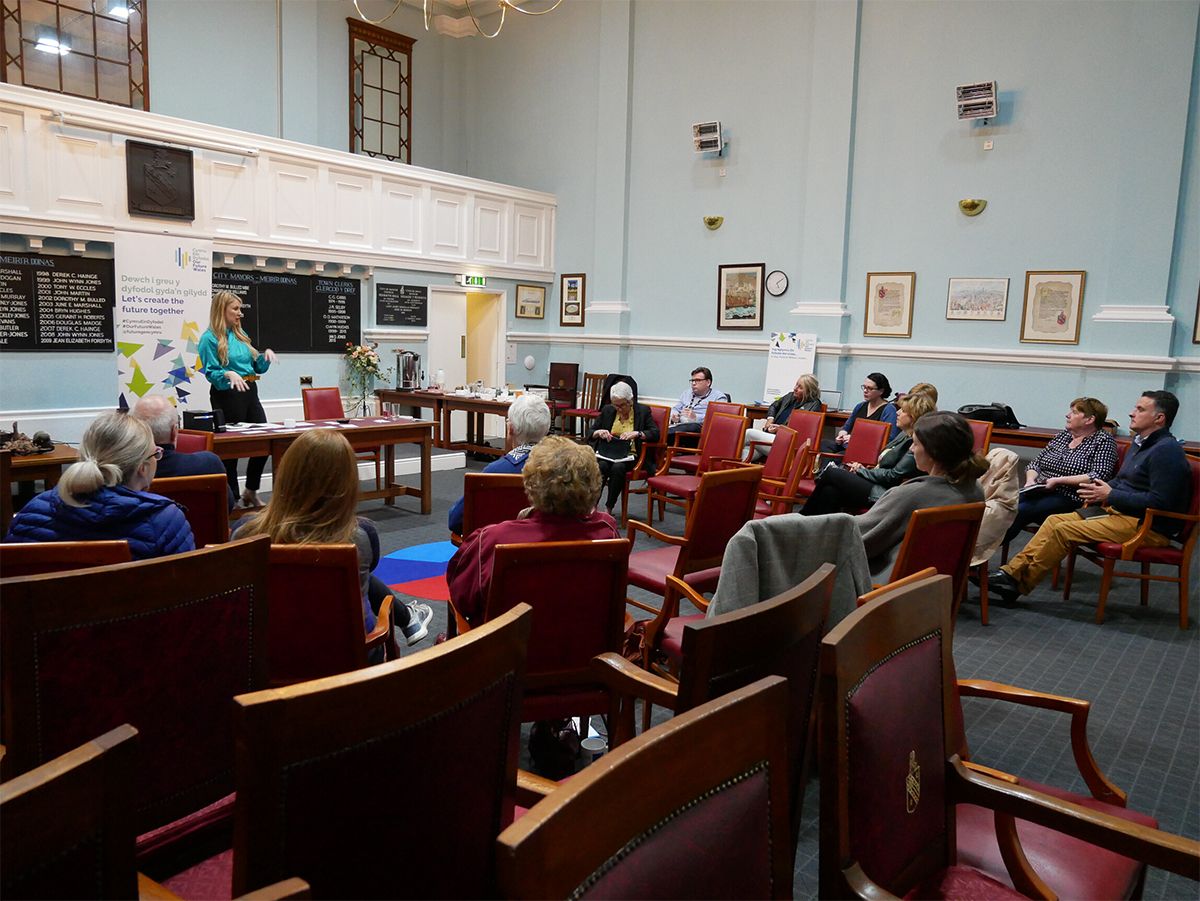
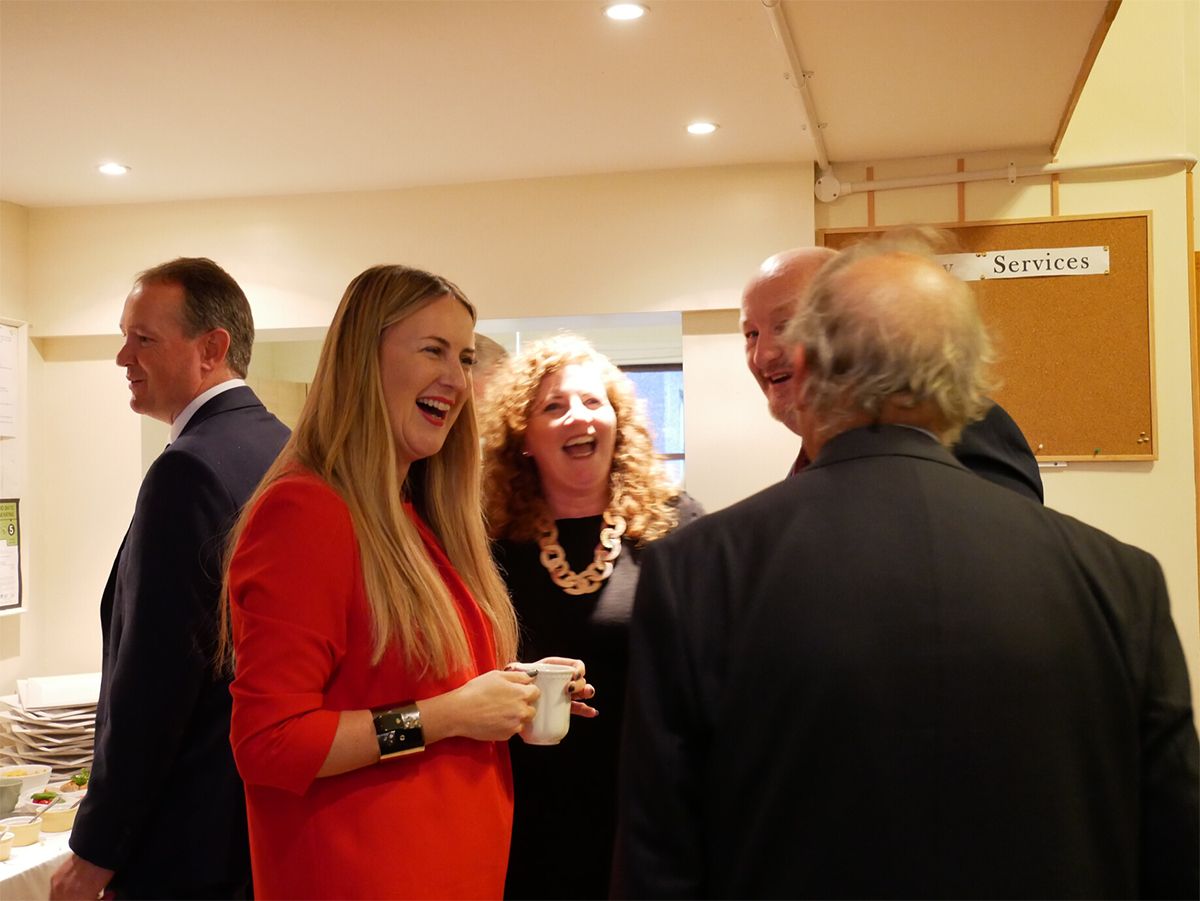
Integration
The Act is facilitating more integrated thinking, with many Public Services Boards working together effectively to tackle issues and public bodies working beyond traditional organisational and geographical boundaries.
For example, Fire and Rescue Authorities going beyond ‘traditional duties’, finding ways of preventing injury in the home.
But sometimes opportunities are being missed to achieve wider preventative benefits through integrating their objectives and collaborating with others, failing to recognise the preventative benefits of good quality housing or the links between culture and gaining skills.
Several public bodies have introduced tools and templates to help people consider how their proposal is integrated and contributing to each of the seven national well-being goals, such as online impact assessment tools (for example, Denbighshire Council) or integrated impact assessments (for example, Welsh Government).
However, paper-based exercises are not enough to show how public bodies are working differently.
There are some national well-being goals that are less understood and clarity is lacking on how public bodies are meeting them.
This is particularly true of ‘A Prosperous Wales’, ‘A Resilient Wales’ and ‘A Globally Responsible Wales’. There is a tendency to rely on the title of the goals, neglecting the full extent of their legal definitions (see Chapter 3 for more information).
統合
この法律は、多くの公共サービス委員会が効果的に協力して問題に取り組み、公共団体が従来の組織的および地理的な境界を超えて取り組むことで、より統合された考え方を促進している。
たとえば、消防・救助当局は「従来の義務」を超えて、家庭内での怪我を防ぐ方法を模索している。
しかし、質の高い住宅がもたらす予防上の利点や、文化とスキル習得との関連性を認識できず、目的を統合し、他者と協力することで、より広範な予防上の利点を達成する機会が逸されることがある。
いくつかの公共団体は、オンライン影響評価ツール (例: デンビーシャー評議会) や統合影響評価 (例: 、ウェールズ政府)を導入したが、紙ベースの演習だけでは、公共団体がどのように異なる取り組みを行っているかを示すには十分ではない。
国家の福祉目標の中には、あまり理解されていないものがいくつかあり、公共団体がどのように目標を達成しているかが明確ではない。
これは特に「繁栄するウェールズ」、「回復力のあるウェールズ」、「世界的に責任を果たすウェールズ」に当てはまる。 目標のタイトルに依存し、その法的定義の全範囲を無視する傾向がある (詳細は第 3 章を参照)。
Further information:
My overall analysis of progress loosely categorised public bodies into the following groups:
さらに詳しい情報:
私が進捗状況を全体的に分析したところ、公共団体は次のグループに大まかに分類された。
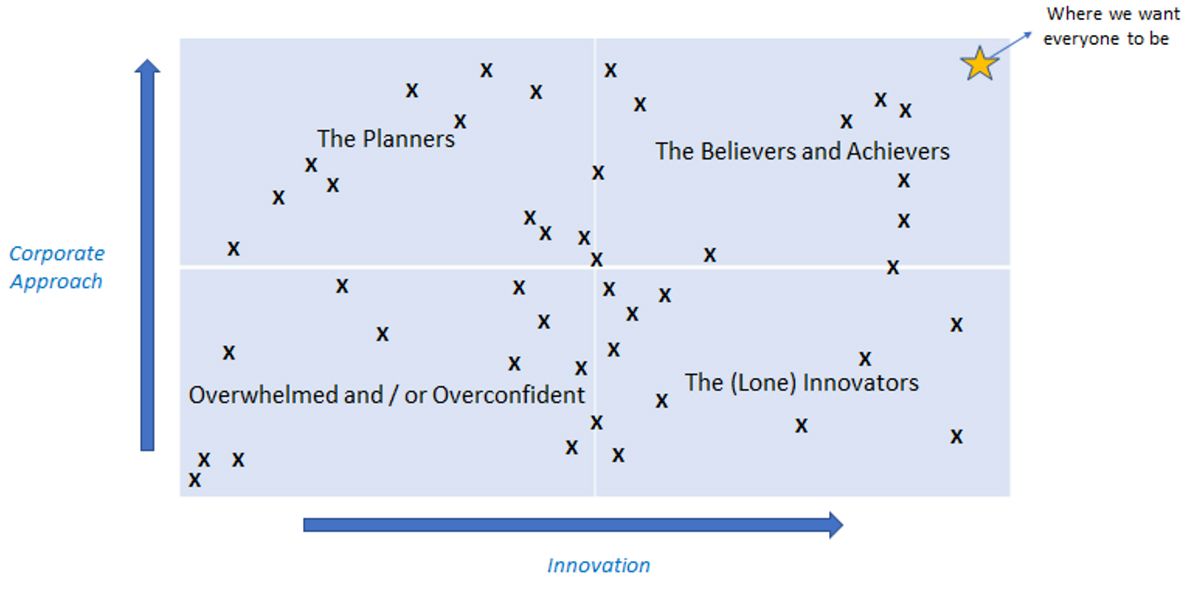
- “The Planners” - organisations that have started with their corporate planning and strategies but often lack innovation.
- “The (Lone) Innovators” - thinking and delivering differently because of the Act but often only in pockets of individuals and teams.
- “The Believers and Achievers” organisations where there are examples of innovative practice, change makers and champions of the Act supported by corporate centres and leaders to work in a new way. Public bodies should be in this space.
- The “Overwhelmed and / or Overconfident” - organisations that seem overwhelmed by responding to crises and / or those that believe they have already ‘cracked’ the Act and giving further attention to their organisational culture is unnecessary.
Dedicating time to a corporate vision pays off, but you need corporate vision, innovation and ‘hearts and minds’ in balance. As such, the Act should apply at two stages of decision making – as a ‘double test’. Firstly, ‘what’ you decide to do. Secondly, ‘how’ you decide to do it and ‘how’ the organisation implements the proposed solution. For those implementing policy and delivering services, understanding what the Act is trying to achieve and understanding their role in delivering it is crucial to seizing every opportunity, not just to do these same things better, but to do better things. (See section on Setting Good Well-Being Objectives in Chapter 4.)
Public services in Wales are around 400,000 people strong - a significant resource. The wider workforce should understand the national mission of the Act and why Wales is at the forefront of improving well-being for future generations, what this means in practice and their role to play. Public bodies could also be using their workforce far more to build a movement of change towards putting well-being at the heart of everything they do.
The Government could go further by adopting the same approach as the Scottish Government in placing the value of kindness at the centre of public policy. The recent COVID-19 crisis showed the power of people when others need help. Although in difficult circumstances, the crisis showed that public servants act in a way that is compassionate and uses common sense.
Implementing the Act would be easier if the corporate planning, performance management and reporting requirements set by Welsh Government for public bodies reflected the Act better; financial planning was longer-term and integrated; and everyone played their part in cultural change. (See my advice and recommendations to Welsh Government on removing barriers to implementation of the Act.)
While cultural change takes time, it is essential we all actively challenge these barriers to progress. Five years on from the Act being in place, it is now incumbent on me, the Auditor General for Wales, Welsh Government and organisations themselves to call out this behaviour and challenge the decisions being made that do not reflect the ways of working required by the Act.
・「ザ・プランナー」 - 経営計画と戦略を策定してスタートしたが、イノベーションに欠けていることが多い組織。
・「(孤独な)イノベーター」 - 法律のせいで考え方や成果が異なりますが、多くの場合、それは個人やチームの一部に限られている。
・「信者と達成者」組織には、革新的な実践例、変革者、法の擁護者がおり、企業センターやリーダーが新しい方法で取り組むようサポートしています。 公的機関はこのスペースに入る必要がある。
・「圧倒されているおよび/または自信過剰」 - 危機への対応に圧倒されているように見える組織、および/またはすでに法律を「突破」しており、組織文化にこれ以上の注意を払う必要はないと信じている組織。
企業のビジョンに時間を費やすことは有益だが、企業のビジョン、イノベーション、そして「心と精神」のバランスが必要だ。 したがって、この法律は、「二重テスト」として、意思決定の 2 つの段階で適用されるべきだ。 まずは「何をするか」を決める。 次に、それを行うことを「どのように」決定し、組織が提案されたソリューションを「どのように」実装するかである。 政策を実施し、サービスを提供する者にとって、この法律が達成しようとしていることを理解し、それを提供する上での役割を理解することは、同じことをより良く行うだけでなく、より良いことを行うためにあらゆる機会をつかむために極めて重要である。 (第 4 章の健康目標の設定に関するセクションを参照。)
ウェールズの公共サービスには約 40 万人が従事しており、重要なリソースである。より広範な労働者は、この法の国家的使命と、なぜウェールズが将来の世代の福祉向上の最前線に立っているのか、これが実際に何を意味するのか、そしてウェールズが果たすべき役割を理解する必要がある。 公共団体も、福祉をあらゆる活動の中心に据える変革の動きを構築するために、労働力をさらに活用する可能性がある。
政府は、優しさの価値を公共政策の中心に据えるというスコットランド政府と同じアプローチを採用することで、さらに前進する可能性がある。 最近の新型コロナウイルス感染症危機は、他の人が助けを必要としているときに人々が持つ力を示しました。 困難な状況ではあるが、今回の危機は公務員が思いやりを持って常識を働かせて行動していることを示した。
ウェールズ政府が公共団体に対して設定した経営計画、業績管理、報告要件がこの法律をよりよく反映していれば、この法律の施行はより容易になるだろう。財務計画は長期的かつ統合的だった。 そして誰もが文化の変化に自分の役割を果たした。 (この法の施行に対する障壁を取り除くことに関するウェールズ政府に対する私のアドバイスと推奨事項を参照)
文化の変化には時間がかかるが、進歩するには私たち全員がこれらの障壁に積極的に挑戦することが不可欠である。この法律が施行されてから 5 年が経過した現在、私、ウェールズ会計検査長官、ウェールズ政府、および団体自体がこの行為を非難し、ウェールズが要求する仕事のやり方を反映していない決定に異議を申し立てる義務がある。
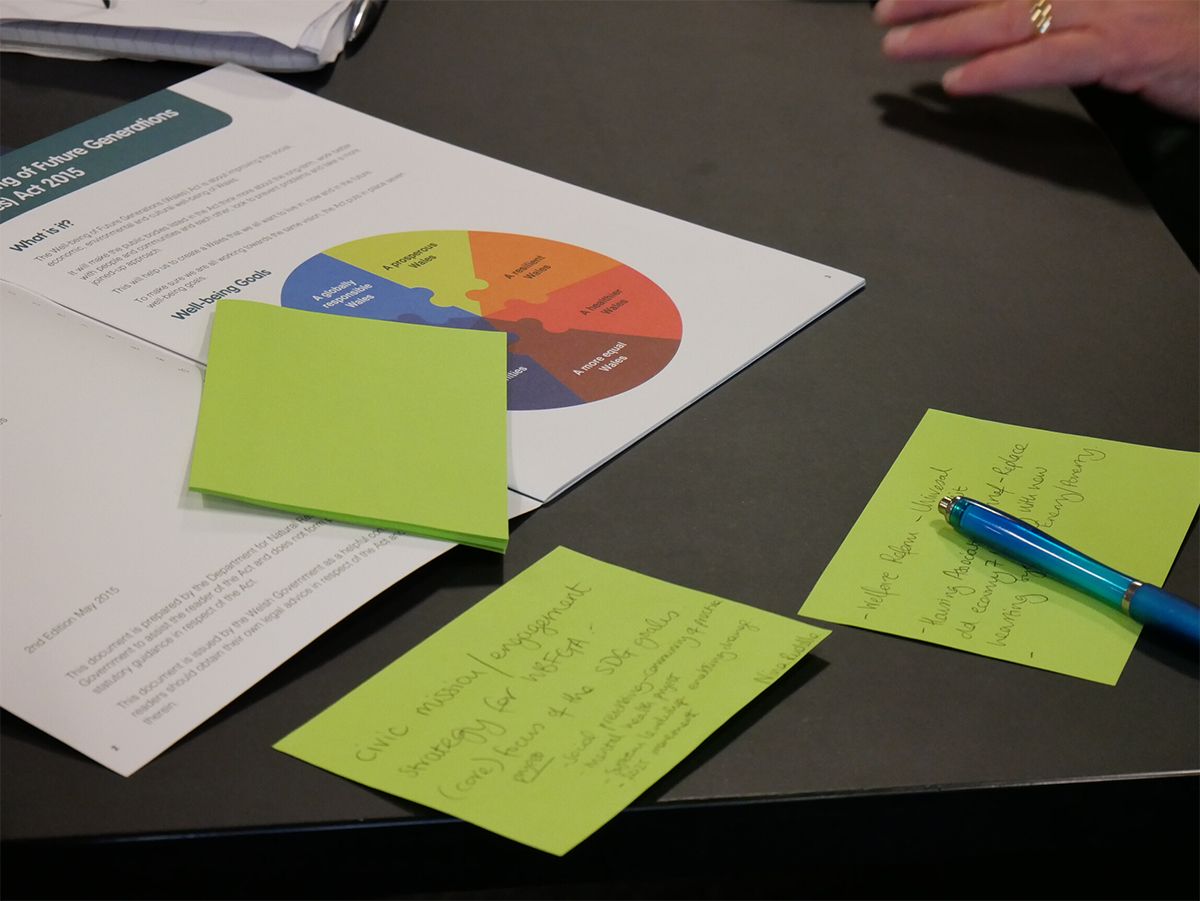
.

